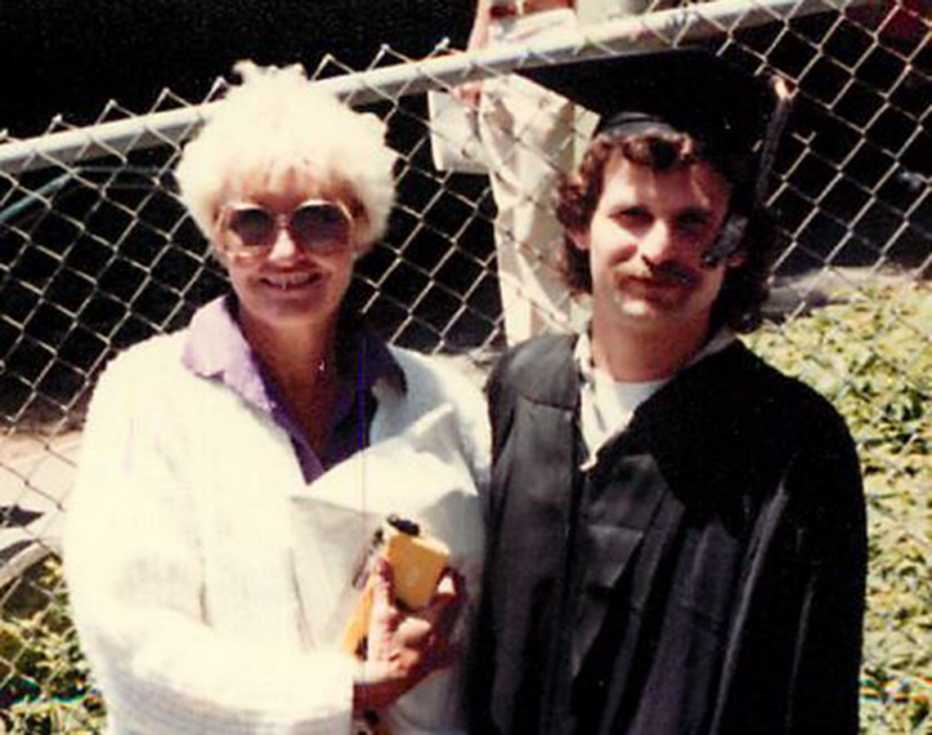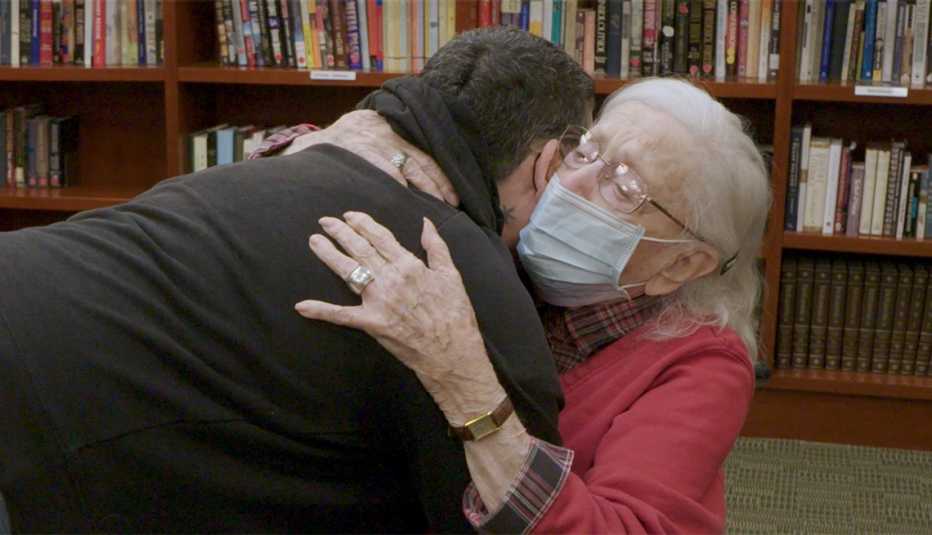AARP Hearing Center
Gloria Single was 82 and had dementia when the Sacramento nursing facility where she lived with her husband, Bill, sent her to the hospital after she grew upset and allegedly threw utensils at residents in the dining room. Within hours, the hospital evaluated her and cleared her to leave, but the nursing facility barred her from returning — a move often referred to as resident “dumping.”
"I remember going in there, and we cried together,” her son Aubrey Jones, 63, said of his early visits with her in the hospital, in 2017. She was disoriented, desperate to go home and asked for Bill. “That period of time when she was in the hospital was just awful.”
Jones challenged her discharge from Pioneer House, part of the Cathedral Pioneer Church Homes II facility, at an administrative hearing before the California Department of Health Care Services and prevailed, prompting an order that Pioneer House readmit his mother. But the facility and its parent organization, Retirement Housing Foundation, refused to budge.
The readmission order was ignored by the facility, say lawyers who later picked up her case, and the state did nothing to enforce it. AARP Foundation, which helps defend vulnerable people over 50 through legal advocacy, filed suit against Pioneer House and Retirement Housing Foundation on Single's behalf. Last week, a California court ruled that her rights had been violated, providing possible ammunition in the fight against dumping in California and beyond.
It's hard to say how often resident dumping happens because “it's a perfect crime,” said Kelly Bagby, an AARP Foundation attorney. “If you don't give people notice that they have due process rights, they don't appeal and there's no paper trail.”


But the most current data from the National Consumer Voice for Quality Long-Term Care, a leading advocacy group, suggests that concerns about illegal and inappropriate evictions are growing. “While the exact number of such discharges is not known, complaints regarding nursing facility-initiated discharges have been the most common type of complaint received by the Long-Term Care Ombudsman program for the last nine years,” said Robyn Grant, the group's director of public policy and advocacy, in an email.
The issue of dumping got national attention when The New York Times investigated a surge of cases last year, amid the COVID-19 pandemic. Included in the paper's reporting were stories of vulnerable nursing facility residents being left at homeless shelters and shabby motels.
Single, for her part, languished in the hospital for more than four months after she was evicted, until her son finally found a place that would take her in. Lacking adequate stimulation, Single lost her ability to walk, her verbal and cognitive skills slipped, and she stopped asking about her husband — whom she never saw again.
'You have to be decent'
AARP Foundation and BraunHagey & Borden's suit against Pioneer House, Retirement Housing Foundation and its five other skilled nursing facilities in California aims to get facilities to comply with due process rules for discharge and make the state impose its laws.
California law requires nursing homes to provide 30 days’ notice and offer a due process hearing before a resident can be discharged. Facilities must document reasons for involuntarily forcing a resident to go and help them find another place to live. They must also hold the bed of a resident who is temporarily hospitalized. Only in limited circumstances, like if the facility shuts down, can residents be evicted against their will without these protections being provided.
The nursing home defendants feel they've been made “the poster child for something we never did,” said attorney John Supple. “We are disappointed by the ruling and do not feel that it accurately reflects the events that occurred or our efforts to protect the resident from harm.”




































































